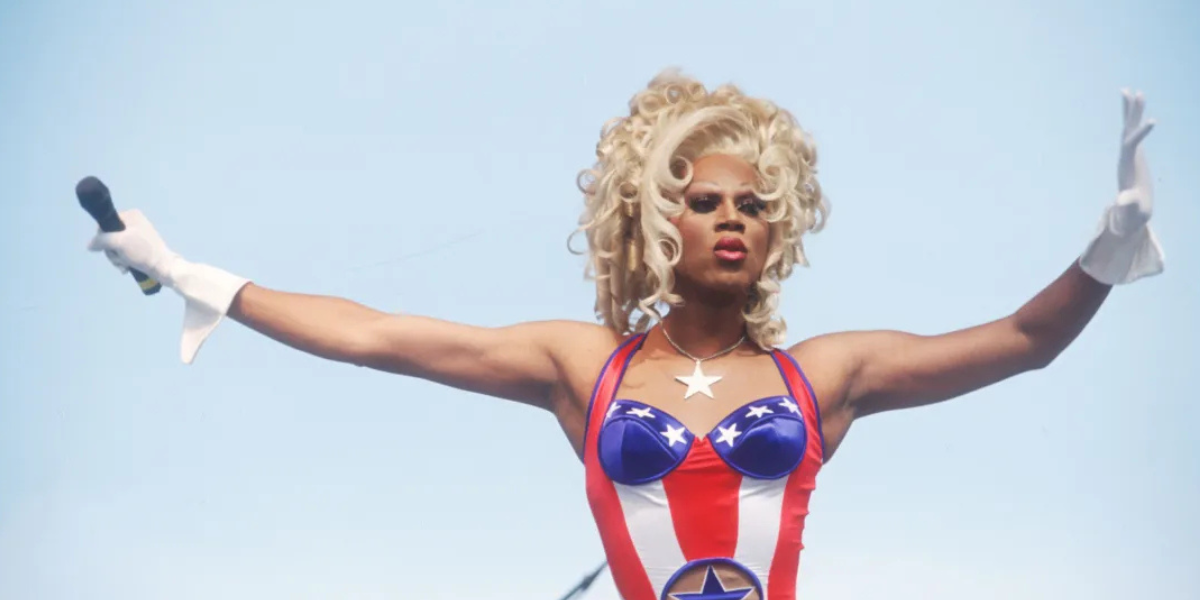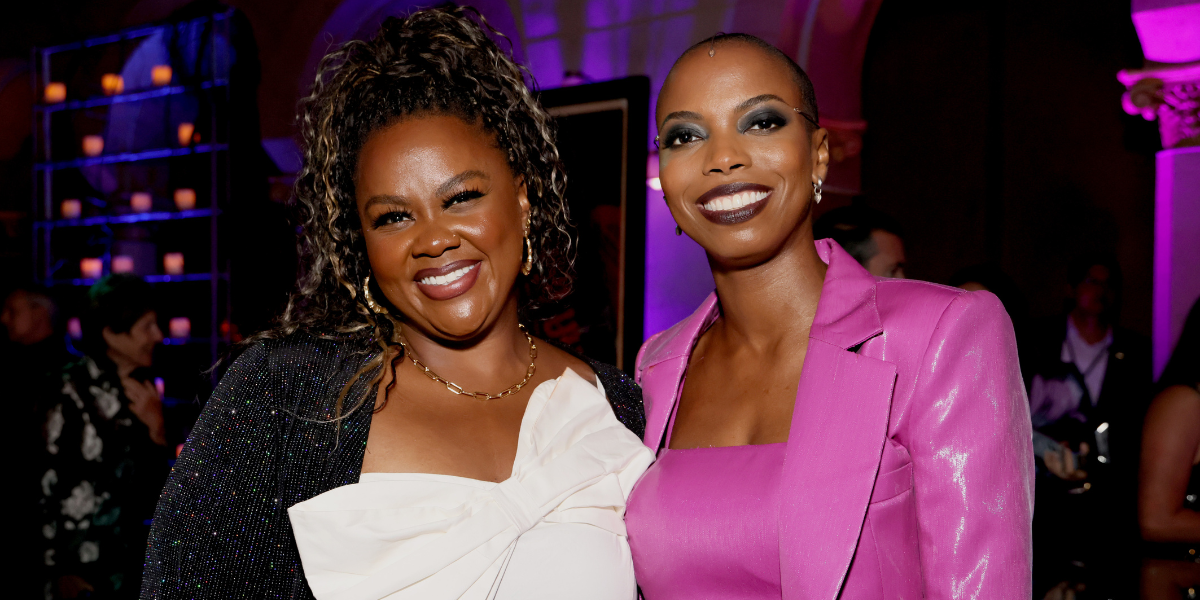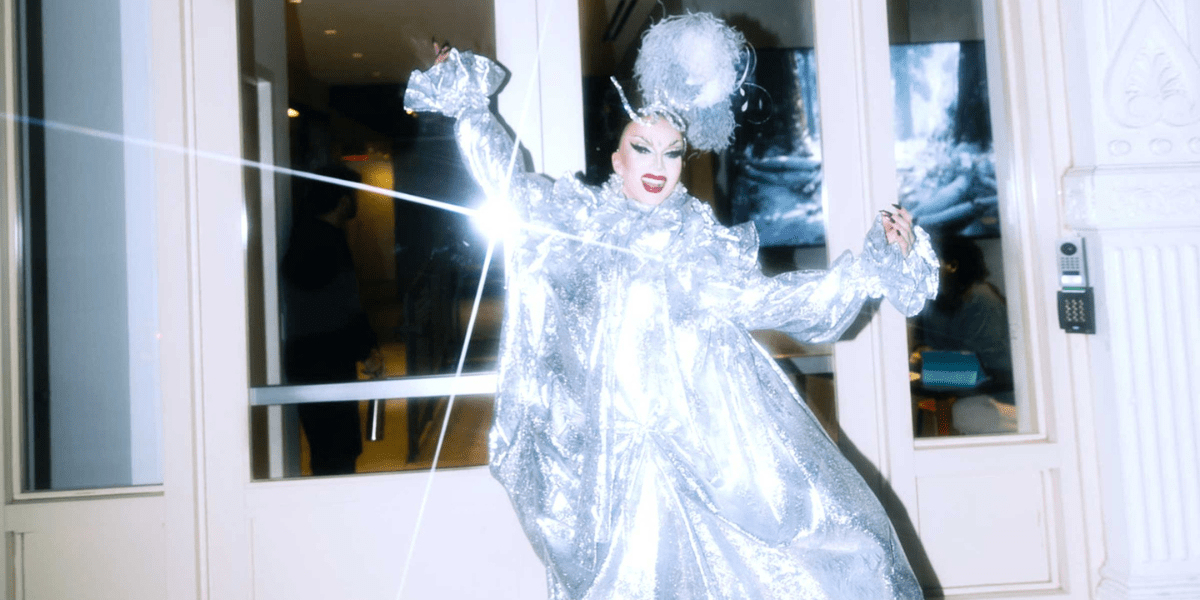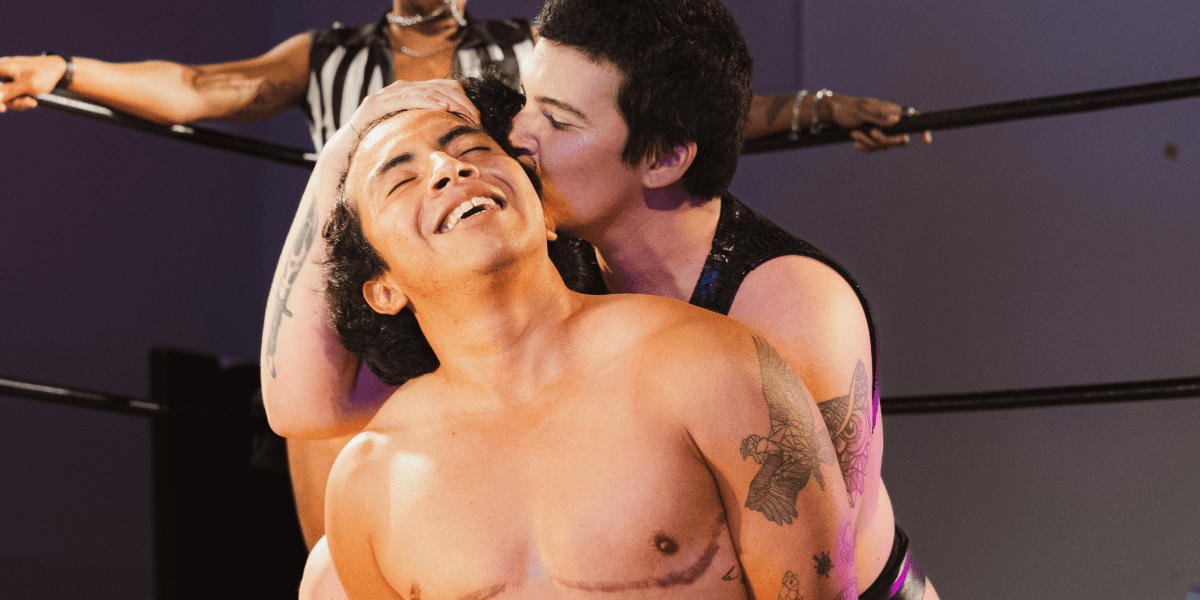Wmn Zine, the love letter to lesbians created by Jeanette Spicer, Florencia Alvarado, and Sarah Duell , is the exploring the radical nature of the term “lesbian.” With the current chiseling away of gender detritus, “lesbian” has been in a strange space. Clung to by trans-exclusionists (aka bigots), lesbian is in constant peril of being absorbed into history as “old fashioned.” But Wmn Zine’s team seeks to explore its possible ability to be adapted and repossessed. Gender might be a spectrum, but it can also be a word cloud. “When thinking of our own identifications, we realized that the term lesbian was in ways a signifier of the past, and could even be considered radical.”
Wmn Zine’s first issue, Season of the Dyke , explores the collision of lesbian with rural landscape, and that’s very personal for the editorial team. “I don’t see myself as a city person forever,” laughs Spicer over the phone. Along with the rest of the editorial staff of Wmn Zine, she’s living in Brooklyn, but as a formal rural lesbian (formerly rural, the lesbian paperwork is still up to date), she hasn’t forgotten her roots. “We wanted to put together a project where artists could share insight for their environment and their location, and how their lesbian experience informs that.”
https://www.instagram.com/p/B3nGxkkBscV/
Spicer is from rural Maryland, and wanted to create a focus around rural lesbianism with a particular interest in older lesbians, “I think elder reverence is really missing in America, and I wish we had more of a community in New York City of older lesbians. It’s such a youth culture.”
“The lesbian community is one that encapsulates so many beautiful women and non-binary people with a long history in art, literature, and life,” says contributor Gabrielle Grace Hogan, a poet who grew up in Missouri without a queer scene she could easily recognize. “Gay women sometimes don’t find themselves comfortable with the word lesbian, for multiple reasons, and I think a lot of it has to do with this stigma against women whose lives have nothing to do with men in any capacity.” Iowa Poetry Prize winning poet Alicia Mountain agrees with Hogan that the avoidance or apprehension of the term “lesbian” can be an intersection of homophobia and misogyny. “Lesbian still kind of weirds people out. I think ‘lesbian’ makes more folks in mainstream culture feel uncomfortable. It’s a bit of an awkward word, it doesn’t roll off the tongue, sounds a little bit clinical. And I kind of love that it’s not normative.”
The fraught relationship people feel around “lesbian” also extends to “rural,” a term with clear definition but smudged meaning. So much coverage of queer in rural spaces are about the whole, so to drill down to specifically rural lesbians is remarkable. To quote Elizabeth Catte, author of What You’re Getting Wrong About Appalachia, “Rural spaces are often thought of as places absent of things, from amenities to people of color to radical politics” and much of the queer experience is wrapped up in a hero’s journey of escape. Hugh Ryan’s essay in Left Elsewhere: Finding the Future in Radical Rural America discusses the narrative of It Gets Better, the project developed by Dan Savage that encourages queer people to grow up, leave their hometowns, and seek respite in the relative safety of major metropolitan areas.
As a former rural queer who has “fled” to “safety,” this writer knows that most safety is an illusion. While people don’t follow me home calling me a “dyke” quite as often as they used to, men still interrupt with a date in a bar to tell us how beautiful we look together. While there are often more concentrated numbers of queer people in cities, rural America is not absent of queers. In 2014 the National Center for Lesbian Rights developed the first #RuralPride that has grown into events across the country. A 2017 study indicated that West Virginia had the highest density of transgender people in the nation . The queers have remained, and they’re organized and know how to change your oil.
Contributor Libby Paloma, a Chicanx interdispinary artist featured in Seasons of the Dyke, spent three years in upstate New York says while she also identifies with the term “queer,” she feels more of an emotional connection to lesbian, especially as a femme. “I find comfort in the word ‘lesbian’ because as a high femme person, I have to out myself all the time.” While living in rural upstate New York, Paloma’s environment ignored her queerness and racial identity, defaulting to a heteropatriarchal lens that forced her to self-disclose her queerness and her race. “Just not being taken seriously [in my gender and sexuality] most places I go, there is this ‘take me, take my culture, take my personhood, and my sexuality serious.’”
Wmn Zine’s team gives the space and landscape for lesbians to speak for themselves. Seasons of the Dyke features incredible breadth of artwork, from photography to sketches to poetry to stencil work, women and non-binary creators like Stephanie Littlebird Fogel, Erina Colombo, and Jess Fry. Spicer says, “I connected so much with how these individuals were so earnest and all the submissions were so personal and intimate.” It took two months from the open call to get Seasons of the Dyke into production, and Wmn Zine hopes to have three issues a year. “This work could have been made anywhere, but I kind of like that. It makes everything come together, and not to be cheesy, but we all are one.”
Spicer always had an affinity for Appalachia, and when discourse surrounds rural space, the social mind defaults to Appalachia or other southern rural people, but Seasons of the Dyke takes work from rural spaces all over the nation, from the mountains of Colorado to the trailer parks of California to upstate New York. One of the artists recently moved to a more rural space when they made their piece, and it was more plain and not as colorful as their usual work.
When asked what surprised her most about country queer culture, Spicer said, “the subtlety of rural queer identity.” Queer community is not something exclusive to metro spaces, but it’s important to expose the non-universal journey of queer people. We stand out from the herd, but also each other.
Preorder WMN zine’s Season of the Dyke (Jan 2020) on wmnzine.com.








Comments
This sounds lovely.
But pleas stop using the word zine to describe magazines that cost $18. It’s really a shitty thing to erase what actual DIY zine culture is.
It’s a shame that lesbian is such a stigmatised word. I love it for myself. Even this article starts off by listing negative points about it and I struggle to find lesbian-specific positivity anywhere. Even on autostraddle and other LGBT sites the word is barely used which makes me feel isolated so much. Hopefully these zine can start to correct that just a small bit <3
Re: the “gay woman” vs “lesbian” divide, I always used to get the vibe that generally a lesbian would be someone who feels a really strong political and social connection to womanhood specifically, while a gay woman would probably have feminist beliefs but might see herself as more incidentally a woman and incidentally gay. I definitely saw myself as more of a “gay woman” at the time, although now I’m more bi/queer identified even though I still don’t date men.
Anyway, it’s really interesting to see where other people draw the lines and how they interpret different labels! I also don’t think it’s necessary or appropriate to always go out of the way to pair identifying as a lesbian with holding TERFy politics – TERFs do seem to favor the lesbian label, but there are so many non-TERF lesbians that a random person choosing to identify that way is very unlikely to be doing it for those sorts of reasons.
Yes thank you! I am a lesbian but I have no truck with transphobic/biphobic people and they often use their lesbianism as a convenient peg to hang their bigotries on and if they’d didn’t use that they’d find some other pathetic excuse to try and justify their shitty behaviour.
Thank you for trucking with the trans folks! Some of us are lesbians too. My phone certainly knows when I want to type that word, unlike literally every third word in this sentence I had to correct
Absolutely, a good 2 3rds of my local trans group are gay/bi women.
It’s particularly jarring to me that the article writer is bisexual but goes out of her way to associate the word lesbian with TERFs when she’s not a lesbian. It really feels like everyone who isn’t a lesbian is allowed an opinion on the term before actual lesbians are.
Speaking of rural lesbian history….
https://www.upress.umn.edu/book-division/books/wild-mares/image_mini
(https://www.upress.umn.edu/book-division/books/wild-mares)
Apparently, I don’t know how to post pictures. Or edit posts.
The book is: Wild Mares, My Lesbian Back-to-the-Land Life by Dianna Hunter.
Pretty sure that’s been covered in an article here somewhere
So much internalized misogyny :(
Do gay men get shamed by their own community for being gay?
Nah, nobody’s here for that. This is reclaiming, not shaming
Yes, thank you 👍🏽